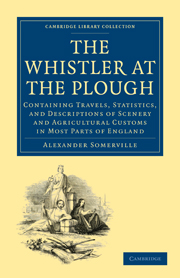 The Whistler at the Plough
The Whistler at the Plough Summary
In the early years of the Anti-Corn-Law League, free trade was viewed, alike by its advocates and opponents, as a question with manufactures and commerce on one side and agriculture on the other. But having been bred to agricultural employment, and accustomed to think though not to write much; having travelled some, and been observant in travelling, l was strongly impressed with a belief that, of all the interests to be promoted by free trade the agricultural interest would be most benefited, and of all persons interested in agriculture, living on or living by the land, the landowners were the parties who had most to gain. My reasons for so thinking will be found in various forms and places throughout this work. I saw and admired the sight of gigantic Manchester lifting up its head and crying, “No monopoly!” and I believed in the faith of that giant, that it, and those who were leagued with it, would some day overcome the mistaken monopolists, and compel them to yield. Yet how far distant did that time seem; what unknown and unlooked-for elements of national unhappiness might be engendered in compelling the agriculturists to surrender their unserviceable, yet dearly cherished protection! Nobody in this country has so large a stake in peace and order as the commercial classes, the owners of money and machinery.
- Type
- Chapter
- Information
- The Whistler at the PloughContaining Travels, Statistics, and Descriptions of Scenery and Agricultural Customs in most parts of England, pp. 1 - 8Publisher: Cambridge University PressPrint publication year: 2009First published in: 1852
- 2
- Cited by
